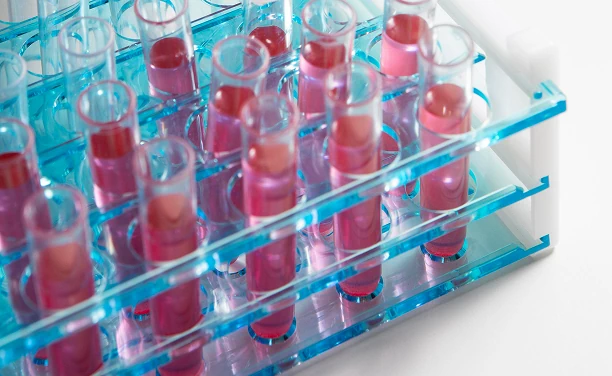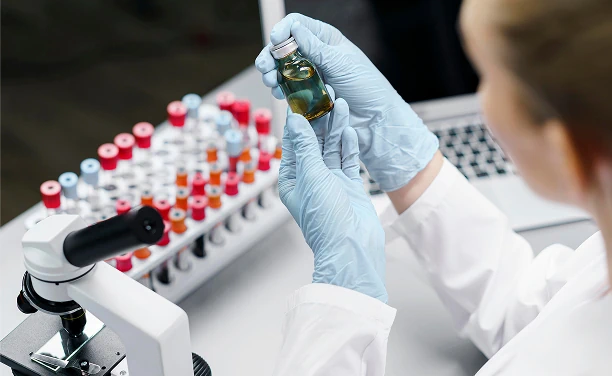- Priosh Home
- »
- Biorepository
Preserving Biospecimens for Advancing Cancer Research
In partnership with Shankus Hospitals Pvt Ltd, a leading oncology care provider, Priosh PharmaChem AG has developed a state-of-the-art biorepository. This facility is central to translational cancer research, collecting, preserving, and distributing high-quality biospecimens to researchers across the globe. With access to an expansive patient base across 10+ hospitals, our biorepository is integral to breakthroughs in cancer diagnostics and treatment development.
At Shankus Hospitals, biospecimen collection is performed under strict ethical standards, safeguarding patient privacy while ensuring the highest sample integrity. Our advanced storage technologies support high-quality research, ultimately improving patient outcomes through the development of next-generation therapies and diagnostics.
Comprehensive and Diverse Sample Collection
Our biorepository is equipped to handle a wide range of biospecimens, meticulously preserved to maintain their viability for cutting-edge research.
Tumor/Adjacent Normal Tissue Samples
RNA Later: Tissues stabilized to prevent RNA degradation.
Snap Frozen: Tissues rapidly frozen to preserve cellular and biochemical integrity.
Biopsy Samples
Small tissue samples collected for molecular analysis.
Bodily Fluids
Serum, plasma, urine, saliva, and other essential fluids used in diverse research applications.
FFPE Blocks
Formalin-fixed, paraffin-embedded blocks stored long-term for histological and molecular analysis.
Note: Sample collection is based on feasibility and is not compulsory.
Current Biorepository Storage Samples
Our biorepository contains a broad collection of biospecimens from various anatomical sites, providing researchers with a valuable resource for advancing cancer research.

Tissue Types
Abdominal, Alveolus, Anal Canal, Arm, Bladder, Bone Marrow, Breast, Cervix, Colon, Endometrium, Esophagus, Gallbladder, Kidney, Liver, Lung, Ovary, Pancreas, Prostate, Rectum, Stomach, and more.

Other Sites
Central Arch, Lip, Neck, Palate, Parotid Gland, Pelvic Mass, Submandibular Gland, Testis, Tongue, Tonsil, and Vocal Cord.
These samples are accompanied by essential clinical data, patient consent forms, and diagnostic images, ensuring comprehensive research utility and compliance with ethical standards.